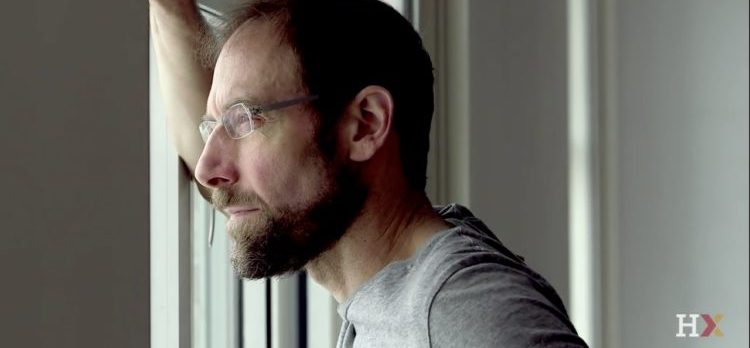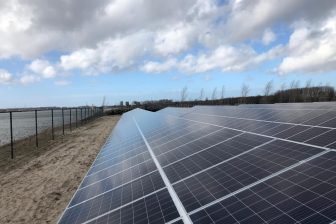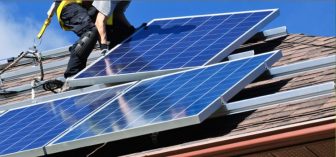Keith: ‘Ik zat ernaast, zonne-energie wordt spotgoedkoop’

2 mei 2016 – Harvard-professor David Keith was lang sceptisch over zonne-energie. Maar hij zat ernaast, stelt hij nu. ‘Zonne-energie wordt spotgoedkoop en kan de toekomst van de mondiale energievoorziening binnen tien jaar veranderen.’
Keith stelt dat hij lang sceptisch was over de ‘solar hype’. Zonne-energie dreef lange tijd op subsidies en belastingvoordeel en de Harvard-hoogleraar kon niet geloven dat energie uit zon goedkoop genoeg zou worden om een volwaardige rol in de elektriciteitsvoorziening te krijgen. ‘I was wrong’, zegt hij nu.
De prijs is fors gedaald. Nu kost elektriciteit van een grootschalige zonne-installatie onder de meest gunstige omstandigheden 4 dollarcent per kWh, rekent Keith voor. In 2020 kan dat met gemak 2 dollarcent per kWh zijn, daarvoor hoeft alleen de huidige voortgang door te zetten, aldus Keith.
Uit het bericht van Keith
‘(…)That’s the good news. But cheap solar does not deal with the problem of solar power’s intermittency. It does not mean rooftop solar in New England makes sense. It does not magically decarbonize the world. In the long run we need low-carbon dispatchable power in the world’s demand centers. This will require some combination of gas for peaking, storage, and long distance transmission. Lots of the world’s demand is in places where insolation is at least 40% less than in the best locations, which are parts of Mexico, Southern-California, the Mid-East, or Australia.
But it does mean that one can now build systems in the world’s sunny locations and get very cheap power. (…)’
Keith ziet twee ontwikkelingen voor de toekomst:
- Op zonnige plaatsen zal zonne-energie een grote rol gaan spelen op de elektriciteitsmarkt. Midden op de dag zal stroom goedkoper zijn (dat is nu al zo in Californië); windenergie, kernenergie en CO2-afvang en opslag hebben moeite met zon te concurreren en gas wordt belangrijker om de dalen in energieaanbod op te vangen.
- Het wordt mogelijk energievraag te brengen naar plekken waar de stroom goedkoop is. Energie-intensieve industrie kan op zonnige plekken komen. Met goedkope zonne-energie wordt bijvoorbeeld de productie van betaalbare CO2-neutrale transportbrandstof – zoals Exxon Methanol-to-Gasoline – mogelijk, aldus Keith.
‘(…) Climate is not the only problem: energy systems have other social and environmental costs, and the land footprint of energy is a good proxy for environmental impacts on water, landscapes, and the natural world. My view is that only two forms of energy—solar and nuclear power—can plausibly supply tens of TW without a huge environmental impact. But that’s a topic for future posts. For now, let’s celebrate the last decade’s progress towards cheap solar. (…)’
Keith schreef de blog als introductie op de gratis online cursus ‘Energy within environmental constraints’ (via edX, start 8 juni)
Bronnen
David Keith, 19 april 2016: Cheap Solar Power
Greentech Media, 28 april 2016: I Was Wrong About the Limits of Solar. PV Is Becoming Dirt Cheap
Foto: David Keith (Still uit video HarvardX)



